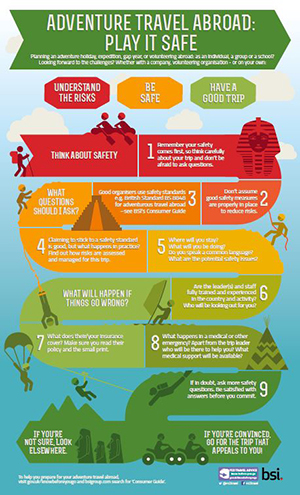
Please note: Our website no longer fully supports IE11, as such you may encounter issues using our website, please try an alternative browser such as Google Chrome, Mozilla Firefox, Microsoft Edge (Windows) or Safari (Mac).

Please note: Our website no longer fully supports IE11, as such you may encounter issues using our website, please try an alternative browser such as Google Chrome, Mozilla Firefox, Microsoft Edge (Windows) or Safari (Mac).

A gap year is a great way to spend some time exploring the world or really getting to know a destination.
It can bring life changing, never-to-be forgotten experiences. More and more gappers are also using it as a way to boost their skills and their CVs as well as really getting to know other cultures and environments. So let us help you make the right choices and get the most out of what could be one of the best years of your life.
Work experience placements are the most popular type of gap year requested by school leavers. These include activities such as teaching English as a foreign language, bar work and internships but the range of options on offer is pretty wide. These give you the advantage of making some money and boosting your CV as well as making new friends.
Next up are volunteering gap years, with students working with local communities, wildlife conservation projects and a whole range of projects that can bring very real benefits both for the gappers and most importantly, the destinations they visit. This can bring a real sense of achievement and in many cases a radically changed view of the world and how we can impact on it for the better. However not all volunteering choices are as good as others, which can lead to disappointment, so check out our tips below on how to choose a good volunteering project.
Adventure gap years are also proving popular, with tour operators offering all kinds of activities from martial arts boot camps to surf schools and ranching lessons, but the options are limitless, all of them can be incredibly exhilarating and inspiring.
It is important you thoroughly research the activities and projects you want to take part in, and the companies you are looking to book with, before committing. Ensure that whatever company you choose, volunteering projects provide a genuine benefit to the local host communities and activities are tailored to your skill set as well as providing a memorable life experience for you.
Consider how your own skill set can add value. Appropriate placement training will not only provide gappers with enhanced skills for the rest of their life but will ensure that they make a real and valuable contribution to the volunteering project, which will also vastly enrich their experience on their gap year.
Companies should carry out background checks on people who want to work with children or vulnerable adults, and provide necessary support when you are abroad.
There is growing evidence¹ orphanages can negatively affect the children who are in this environment and by working in orphanages, volunteers can inadvertently cause harm to children. ABTA has been taking an active role in supporting child safeguarding for many years and advises its Members to move away from volunteering in orphanages.²
If you are considering volunteering in an animal sanctuary, be aware that a genuine sanctuary should have a no breeding policy and that physical contact should only take place for essential management or veterinary purposes.
¹Martin Punaks (Lumos). 18 July 2017. Exploiting children in orphanages recognised as trafficking. Anti-Slavery International.
²ABTA collaborated with leasing experts such as Unicef and Better Care Network to develop Volunteer Tourism Guidelines. The Guidelines recommend that companies move away from volunteer placements in orphanages.
Check with your travel company and with the Foreign Office for “dos and don’ts” and “no go” areas for the country you are visiting. They will also tell you about visa requirements and how to get relevant visas, do this well in advance. This is especially important if you are going to be working.
Choose a reputable gap year travel company with a good track record that is a member of a trade association such as ABTA.
Get a good quality travel insurance policy and make sure it covers the activities you want to take part in as well as the length of time you will be away. The cheapest policies will not necessarily provide you with the level of cover needed for a lengthy stay overseas.
Research local customs and culture before you go. You will understand much more about the host destination, fit in better and avoid unwittingly causing offence.
Make sure you have all the necessary jabs and inoculations; do this at least eight weeks before you travel. Check the NHS fit for travel website.
Don’t be tempted to hire a moped or quad bike to get you around, they are both potentially very dangerous and if you have an accident it is very unlikely that your insurance will cover you.
Tell your bank where and when you’ll be travelling, if you do not they may stop your card
Keep electronic copies of all your important travel documents and leave a copy with someone at home.
Keep a list of emergency contact numbers - your bank, insurance company, British Embassy or consulate.
Keep in regular contact with your parents – they will only worry if you don’t!
